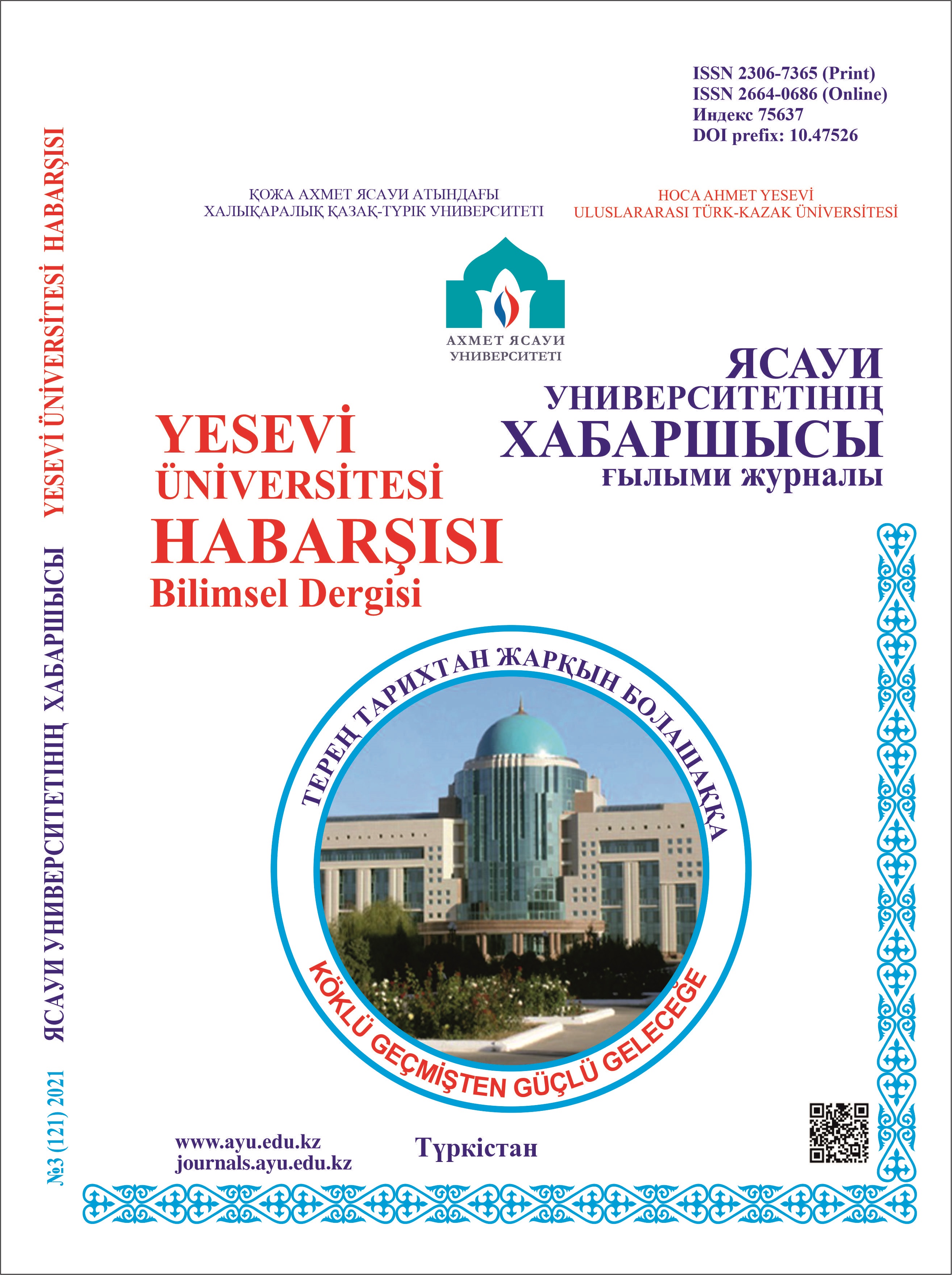Global Competencies in Geographic Education for Sustаinablе Dеvеlopmеnt
217 93
Keywords:
Sustainable Development Goals (SDG), Education for Sustainable Dеvеlopmеnt, training future geography teachers, global competencies, project activity.Abstract
Global compеtеncies in Gеographic Еducation for Sustainablе Development are a set of key skills and knowledge that are necessary to solve global problems such as climate change, inequalitybetween people, poverty and other challenges of our time. These competencies include geographic thinking, environmental awareness, intercultural communication, global citizenship, and other important skills. Using global competencies for sustainable development in the education system will help prepare students to solve the complex problems they will face in the future. Using global competencies for sustainable development in the education system will help prepare students to solve the complex problems they will face in the future. These competencies should, if possible, integrated into curricula and teaching methods to ensure complete and effective training. Globalcompetenciestrainingfocusesoncreating a holisticunderstanding of the environment,societyand the economy in order to improve the achievement of SustainableDevelopmentGoals.Accordingto the analysis of the literature, it is necessary to carry out targetedworktostimulatestudents' socialactivitythrough a system of projectactivities,organizationandimplementation of practices. Students can work in groups to solve real problems using their knowledge and skills. This will help them develop critical thinking, social responsibility and other global competencies. Another way to use global competencies is to integrate an interdisciplinary approach into the learning process. Students can study issues such as climate change from a variety of perspectives, including physics, biology and sociology. This will help them understand the complexity of the problem and develop a comprehensive approach to solving it. To better equip students for future challenges and support the development of a stable and equitable society, it is essential to integrate global competencies in sustainable development into every course.
References
Deardorff D. The Identification and Assessment of Intercultural Competence as a Student Outcome of Internationalization at Institutions of Higher Education in the United States // Journal of Studies in International Education. – 2006. – Vol. 10. – P. 241–266. https://doi.org/10.1177/102831530628700
Hunter B., White G., Godbey G. What Does It Mean to Be Globally Competent? // Journal of Studies in International Education. – 2006. – Vol. 10. – P. 267–285.
The Organization for Economic Cooperation and Development. [Electronic resource]. URL: http://www.oecd.org (date of access 12.07.2024)
PISA 2018 Global Competence. [Electronic resource]. URL: https://www.oecd.org/pisa/innovation/global-competence/ (date of access 12.07.2024)
Parmigiani D., Jones S-L., Kunnari I., Nicchia E. Global competence and teacher education programmes. A European perspective // Cogent Education. – 2022. – Т. 9. – №1. https://doi.org/10.1080/2331186X.2021.2022996
OECD (2018). Preparing our youth for an inclusive and sustainable world. The OECD PISA Global Competence framework. [Electronic resource]. URL: https://www.oecd.org/content/dam/oecd/en/topics/policy-sub-issues/global-competence/Handbook-PISA-2018-Global-Competence.pdf (date of access 12.07.2024)
OECD. PISA 2018 Assessment and Analytical Framework. – Paris: OECD Publishing, 2019. – 308 p. https://doi.org/10.1787/b25efab8-en
Kataeva T.S. Formirovanie globalnyh kompetenciy obuchaiushihsia osnovnoi shkoly na urokah obshestvoznania [Formation of global competencies of secondary school students in social studies lessons] // Molodoi uchenyi. – 2023. – №25 (472). – S. 330–333. [In Russian]
Kioupi V., Voulvoulis N. Education for Sustainable Development: A Systemic Framework for Connecting the SDGs to Educational Outcomes // Sustainability. – 2019. – Vol. 11, №21. https://doi.org/10.3390/su11216104
Morgan C., Volante L. A Review of the Organisation for Economic Cooperation and Development’s International Education Surveys: Governance, Human Capital Discourses, and Policy Debates // Policy Futures in Education. – 2016. – Vol. 14, №6. – P. 775–792. https://doi.org/10.1177/1478210316652024
Nerini F., Tomei J., To L., Bisaga I., Parikh P., Black M., Borrion A., Spataru C., Broto V., Anandarajah G., Milligan B., Mulugetta Y. Mapping Synergies and Trade-Offs Between Energy and the Sustainable Development Goals // Nature Energy. – 2017. – Vol. 3. – P. 10–15.
Iizuka M. Role of Environmental Awareness in Achieving Sustainable Development. 2000. https://doi.org/10.13140/RG.2.1.3156.6484. [Electronic resource]. URL: https://biblioteca.cejamericas.org/bitstream/handle/2015/3375/Role_Environmental_Awareness_Achieving_Sustainable_Development.pdf?sequence=1&isAllowed=y (date of access 12.07.2024)
Blok V., Wesselink R., Studynka O., Kemp R. Encouraging Sustainability in the Workplace: A Survey on the Pro-Environmental Behaviour of University Employees // Journal of Cleaner Production. – 2015. – Vol. 106. – P. 55–67. https://doi.org/10.1016/j.jclepro.2014.07.063
Rieckmann M. Future-Oriented Higher Education: Which Key Competencies Should Be Fostered Through University Teaching and Learning? // Futures. – 2012. – Vol. 44, №2. – P. 127–135.
Wilcox K. The Importance of Civic Responsibility // Education and Urban Society. – 2010. – Vol. 43. – P. 26–41.

